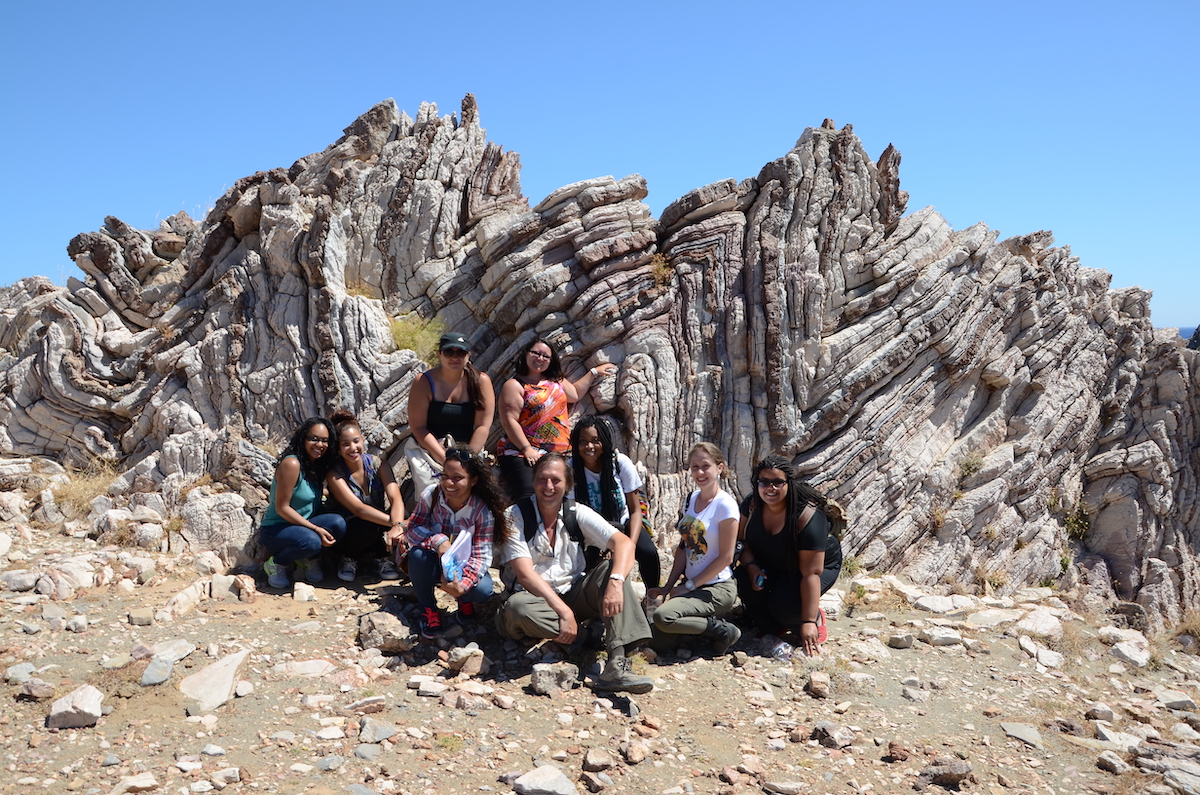CONTACT
-
Department of Earth, Environmental, and Geospatial Sciences (EEGS)
718-960-8660
Gillet Hall, Room 315
Earth Science

Earth Science is the study of our planet, including its materials, structure, processes, and history. Earth materials, such as water, oil, coal, metals, and soil, are our primary resources. Understanding Earth’s structure helps us to find and collect these essential resources. Studying Earth processes such as volcanic eruptions, earthquakes, floods, and landslides, not only helps us understand how Earth materials form, but also helps us to avoid the hazards they pose to human life and property. Studying Earth’s history helps us to understand present day processes in such as climate change by examining similar changes in the past.
Earth Science teachers are in high demand in the New York City and surrounding areas. Many Earth Scientists work in environmental and engineering consulting firms, alternative energy generation, mining and petroleum industries, ground water and hydrology, geo-hazards analysis and risk assessment, and Earth science education. Earth Scientists work in a variety of setting including outdoors fieldwork, laboratories, offices, and classrooms. They use a wide variety of techniques including chemical and physical analysis, satellite imagery and spatial analysis, and computer modeling. This work often involves travel and physical activity.
- BA in Earth Science (30 credits)
- Minor in Earth Science (16 credits)
- Certificate in Earth Science (30 credits); Download Certificate Application (PDF)
Bachelor of Arts in Earth Science, 30 Credits
This program is recommended to teacher education students. The required credits are distributed as follows:
22 credits in required courses
- GEO 101 Dynamic Earth (3 hours, 3 credits)
- GEO 102 Dynamic Earth Laboratory (2 hours, 1 credit)
- GEO 167 Earth Evolution (3 hours, 3 credits)
- GEO 168 Earth Evolution Laboratory (2 hours, 1 credit)
- GEO 228 Weather and Climate (3 hours, 3 credits)
- GEO 229 Weather and Climate Laboratory (2 hours, 1 credits)
- GEO 245 Earth Materials (5 hours, 4 credits)
- GEO 4500 Topics in Earth Science (2 hours, 2 credits)
- AST 117 Astronomy of Stellar Systems (5 hours, 4 credits)
8 credits in to be chosen from the following courses:
- GEO 236 Environmental Geology (5 hours, 4 credits)
- GEO 340 Natural Hazards and Disasters (3 hours, 3 credits) and GEO 341 Natural Hazards and Disasters (2 hours, 1 credit)
- GEO 345 Environmental Hydrology (5 hours, 4 credits)
- GEO 370 Regional Field Geology and Mapping Techniques (5 hours, 4 credits)
- GEO 448 Plate Tectonics (5 hours, 4 credits)
- GEO 490 Honors Geology (5 hours, 4 credits)
- (Other courses may be substituted with department permission.)
Certificate in Earth Science, 30 Credits
The Certificate in Earth Science is structured to provide a strong foundation in Earth science content. The program is intended for certified teachers of other science areas who plan to obtain a second certification in Earth Science as well as holders BA or BS degrees who seek a foundation in Earth science before applying to a Masters of Education program.
22 Credits in Required Courses
- GEO 167 Earth Evolution (3 credits)
- GEO 168 Earth Evolution Lab (2 hours, 1 credits)
- GEO 228 Weather and Climate (3 hours, 3 credits)
- GEO 229 Weather and Climate Lab (2 hours,1 credits)
- GEO 245 Earth Materials (5 hours, 4 credits)
- GEO 301 Earth Science for Educators (5 hours, 4 credits)
- GEO 4500 Topics in Earth Science (2 hours, 2 credits)
- AST 117 Astronomy of Stellar Systems (5 hours, 4 credits)
8 Credits to be chosen from the following:
- GEO 236 Environmental Geology (5 hours, 4 credits)
- GEO 340 Natural Hazards and Disasters (3 hours, 3 credits) and GEO 341 Natural Hazards and Disasters (2 hours, 1 credit)
- GEO 345 Environmental Hydrology (5 hours, 4 credits)
- GEO 370 Regional Field Geology and Mapping Techniques (5 hours, 4 credits)
- GEO 448 Plate Tectonics (5 hours, 4 credits)
- GEO 490 Honors Geology (5 hours, 4 credits)
- (Other courses may be substituted with department permission.)
Earth Science courses are listed under the GEO course numbers.
-
Department of Earth, Environmental, and Geospatial Sciences (EEGS)
718-960-8660
Gillet Hall, Room 315 - See all contacts








